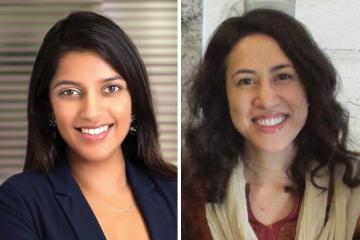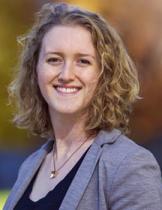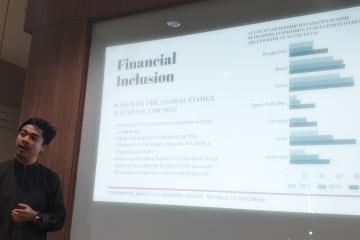
Tanya Sethi, J-PAL ’14, is tackling the big questions in aid and policy
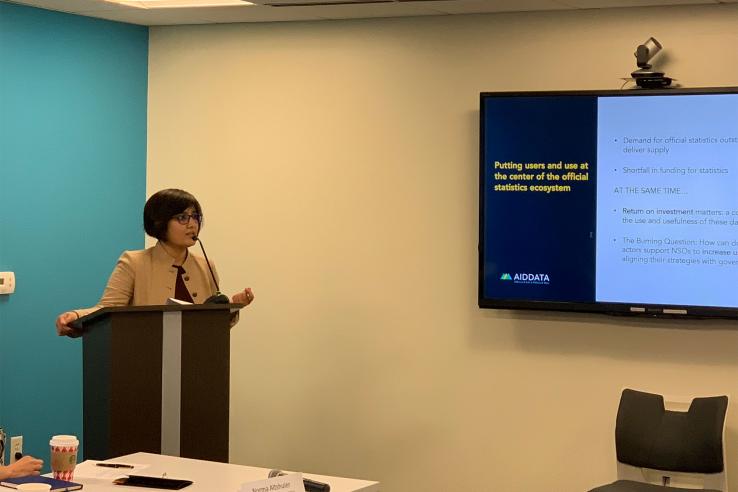
The Alumni Spotlight series highlights J-PAL alumni who are making an impact across industries and around the world. To nominate a J-PAL alum to be featured in a future Alumni Spotlight, please fill out this form.
In the next installment of our Alumni Spotlight series, we speak with Tanya Sethi, a former senior policy associate at J-PAL South Asia. Tanya joined J-PAL South Asia’s policy team after receiving a master’s degree in public policy from the Paris School of Economics. At J-PAL South Asia, she played a key role in an early partnership with the Government of Tamil Nadu and helped lay the conceptual groundwork for important program scale-ups. Now a senior policy analyst at AidData, she reflects on her path to international development, the challenges associated with bridging the gap between evidence and policy, and the dynamic nature of policy research at AidData.
Tell us a bit about your background. What drew you to the field of development?
While I was interested in development issues throughout my higher education, it was my first job as an assistant editor for the Economic and Political Weekly, an Indian social sciences journal, that exposed me to a wide range of development policy issues. Some of the most exciting debates that were happening in India at that point in time—from how to measure poverty to assessing the impact of flagship government programs—were happening on the pages of this particular journal. So even though my academic training was in economics, through this journal I also had the opportunity to look at issues from historical, sociological, and political perspectives. The possibility of seeing issues from these multiple perspectives and arriving at solutions further advanced my interest in the field of development.
That was one of the reasons I decided to pursue a second master's degree in public policy. I wanted to go broader than economics and look at development issues through a multi-disciplinary lens. My master’s program strengthened my quantitative skills, specifically in the area of impact evaluation, and got me excited about the applied side of economics. While my program was about developing a rigorous approach to impact evaluation, it also made me aware that not every question or context lends itself to the same kind of rigor.
How did you first come across J-PAL, and what were some of your main responsibilities on the policy team?
I first read about J-PAL when I was working at the Economic and Political Weekly in Mumbai, but it was only during my master's program that I developed a good understanding of the organization and its methods. It’s one thing to read about impact evaluations in various settings and contexts, and another to see how these play out in reality when you're working with an implementing partner, such as an NGO or a government who you're hoping will take action based on the results of these evaluations. I wanted to witness first-hand how evaluations enter the realm of policy, which is what drew me to apply to J-PAL.
At the time that I joined, the policy team at J-PAL South Asia was focused on documenting some of the programs that had shown impact in the region, including Targeting the Ultra-Poor and Teaching at the Right Level. These approaches had been tested in different contexts with slight tweaks in implementation to fit the contextual realities—my job was, in part, to document what these tweaks looked like in the hope of creating a more generalizable approach that could then be scaled up in different contexts.
At that time, J-PAL had also just launched a five-year partnership with the state of Tamil Nadu. The policy team was quite nascent then, and this partnership was geared towards generating demand for impact evaluations across multiple government departments. The unique aspect was that we used the most pressing challenges of various line ministries as the starting point to jointly develop solutions in collaboration with J-PAL researchers.
I led the partnership with Tamil Nadu’s health department, which involved serving as a bridge between government officials and J-PAL affiliates who were interested in partnering with governments to test interventions to health problems. This was challenging because the incentive structures on both sides could be quite different. Government officials tend to care most about cost effectiveness and the potential to scale up an intervention, while academics are often driven by testing innovative approaches, the results of which have a higher likelihood of being published in prestigious journals. In those cases, it was important to listen and to appreciate the constraints and political realities that government officials faced. I enjoyed playing that liaising role and bringing the two sides together to flesh out interventions that would be mutually agreeable and testable.
I also learned that it’s important to engage at different levels of government, whether the state, local, or district level, because their understanding of bottlenecks for certain issues may be very different, and it is very important—though often challenging—to reconcile these perspectives.
You moved on to AidData, a research lab at the College of William and Mary, after J-PAL. Tell us a little bit about what you’re working on now.
I have been with AidData for a little over four years now, where I work as a Senior Policy Analyst within the policy team. In this capacity, I’ve consulted organizations such as the US Department of State, USAID, the German Ministry for Economic Cooperation and Development, the Hewlett and Gates Foundation on issues of aid effectiveness, foreign policy, development finance, and evidence use. I serve the dual role of leading the research and translating insights from this research into policy recommendations that can inform their organizational strategies.
I am currently leading the design of a survey to capture perceptions of policymakers and practitioners in 140 low- and middle-income countries regarding donor performance. In an upcoming study in collaboration with the German Institute for Development Evaluation (DEval), we look at whether donor adherence to internationally recognized aid effectiveness principles (such as not tying aid, or aligning aid with recipient country budgets) makes donors seem more helpful in the eyes of their domestic counterparts.
What advice would you give to those who are interested in exploring a career at the intersection of research and policy?
I've realized over time is that we often have a simple linear model of how research influences policy: I'm going to produce amazing research, and then I'm going to present it to a government official or to a certain organization, they're going to understand it and use it to introduce or change policies. In my view, credible research is a necessary (though insufficient) starting point, but the pathway to actually influencing policy can be quite messy. My advice, especially to those who are on the early side of their careers and who are ambitious about creating change, is to have a lot of patience, since there are no quick wins in this space.
Three lessons that I’ve learned in my career thus far: (1) translating research into policy requires a deep understanding of political realities and how to navigate them, (2) listening to the other side and being flexible in changing your approach can go a long way in ensuring take-up of results, and (3) whether working with a government or another organization, it pays to build relationships and trust at various levels to ensure continuity of engagement over the long term.
Related Content

Irwan Setyawan, J-PAL ‘17, on making the jump from research to government in Indonesia
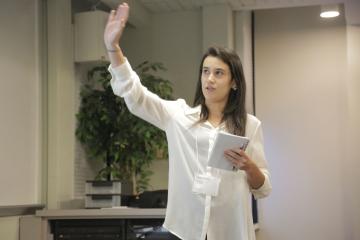
Laura Abadia, J-PAL ’19, on her path from J-PAL Europe to the OECD
